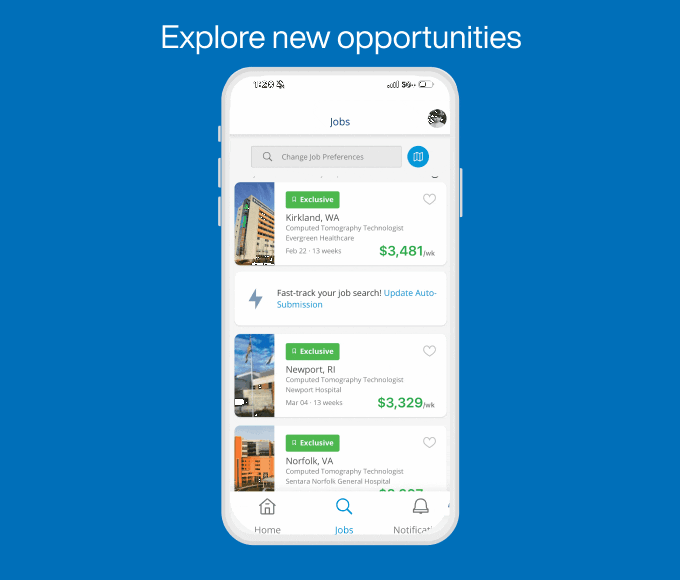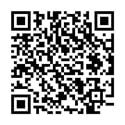
Nursing SMART Goals: How to Set Effective and Achievable Goals
Goal setting is an integral part of any career, and nursing is no exception. For healthcare professionals, particularly travel nurses, setting clear and actionable goals can drive career development, improve patient care, and reduce professional burnout. This is where SMART goals in nursing come into play.
Whether you're navigating the challenges of different healthcare settings as a travel nurse or seeking to grow your nursing expertise, adopting the SMART framework can help you achieve your goals with focus and efficiency.
What Are Nursing SMART Goals?
SMART is an acronym that stands for Specific, Measurable, Achievable, Relevant, and Time-bound. This framework provides a structured approach to goal setting, ensuring that each objective is clear and reachable. Here's a quick breakdown of what each letter represents in nursing contexts:
- Specific – Goals should be well-defined and targeted. Avoid vague statements like "improve my skills" and instead specify what skills you want to improve and how.
- Measurable – Progress must be trackable, so you can evaluate success. For example, "Complete two professional certifications in six months" provides a clear metric.
- Achievable – Goals should challenge you but remain realistic. Setting unattainable goals can overwhelm you, leading to demotivation.
- Relevant – Your goals must align with your nursing interests and career aspirations. For instance, pursuing a certification in pediatric care is relevant if you want to specialize in working with children.
- Time-bound – Set a deadline to finish your goal. Adding a timeframe helps maintain focus and urgency, such as "learn a new charting system within three weeks."
Why Are SMART Goals Important in Nursing?
Nursing is a demanding profession with long hours, high stakes, and emotional challenges. SMART goals help nurses:
- Improve Patient Care – Setting goals to refine specific skills or master equipment can enhance care quality.
- Advance Careers – SMART goals guide nurses in earning certifications, adapting to new roles, or moving into specialized fields.
- Manage Time – Clear goals help nurses prioritize tasks and stay organized in fast-paced environments.
- Build Confidence – Achieving goals boosts confidence and prepares nurses for challenges.

How to Set Effective SMART Goals in Nursing
1. Start With a Self-Assessment
Take stock of your current skill set and identify areas for improvement. Reflect on questions such as:
- What competencies have I mastered in my nursing role?
- Are there specific challenges I face repeatedly that require attention?
- How can I stand out in my nursing assignments, particularly as a travel nurse?
Self-assessments provide clarity, laying the groundwork for informed goal-setting.
2. Define Goals Using the SMART Framework
Write down each goal and evaluate it against SMART criteria. For instance:
- Specific: "I want to improve patient education for diabetes management."
- Measurable: "Deliver ten 1-on-1 patient education sessions focused on diabetes management within the next two months."
- Achievable: "I will dedicate one hour each week to learning evidence-based educational practices."
- Relevant: "Patient education is critical for preventing complications, aligning with my role as a care provider."
- Time-bound: "I will achieve this goal by [specific date]."
3. Break Goals into Smaller Steps
Big goals can feel intimidating. One way to tackle them is by breaking them into smaller, actionable tasks.
Example
For a goal like "become a certified oncology nurse in one year," smaller steps could include:
- Research the top oncology certification programs
- Set aside two evenings per week for studying
- Register for the certification exam by [specific date]
This approach keeps you focused while making progress feel manageable.
4. Track and Adjust Your Goals Regularly
Goal setting requires regular check-ins to track progress and keep objectives achievable.
Example
If you're a travel nurse who set a goal to improve your IV placement technique, you might realize after three months that you've already become proficient. At this point, it’s time to evolve your goal—perhaps towards mastering central line placements.
5. Use Resources to Support Your Goals
Make use of available tools, resources, and communities to support your SMART goals.
- Enroll in online nursing courses
- Join nursing-focused LinkedIn groups or Facebook communities for networking and advice
- Use apps designed for nurses, such as medication calculation tools or shift management platforms
Bonus for Travel Nurses
Travel nursing agencies often provide valuable resources such as online training, mentorship programs, and certifications. Take advantage of these perks as tools for growth.
6. Celebrate Your Wins
Achieving milestones, no matter how small, deserves acknowledgment. Celebrating accomplishments reinforces your motivation and encourages you to pursue more ambitious goals.
Examples of SMART Goals in Nursing
To inspire you, here are specific examples of SMART goals for nursing professionals across different areas:
General Nursing
- Specific: Administer IVs with 95% accuracy within the next 3 months
- Measurable: Track errors and successes weekly during shifts
- Achievable: Complete training sessions designed to enhance IV placement skills
- Relevant: Mastering IV administration is critical for acute patient care
- Time-bound: Achieve this by December 31
Travel Nursing
- Specific: Learn the charting system used at [hospital name] within one week
- Measurable: Be able to independently complete patient charts by [specific day]
- Achievable: Dedicate two hours daily for charting practice
- Relevant: Proficiency in charting reduces errors and enhances workflow in new facilities
- Time-bound: Accomplish this before the end of your first week on the assignment
Career Growth
- Specific: Enroll in an Advanced Cardiac Life Support (ACLS) course within the next two months
- Measurable: Dedicate 4 hours per week to studying and complete an exam simulation
- Achievable: Allocate Saturdays for course-related activities
- Relevant: ACLS certification aligns with your goal of transitioning into critical care nursing
- Time-bound: Earn certification by January 15
Elevate Your Career Through SMART Goals
Setting SMART goals is key to advancing your nursing career, whether you’re just starting out, specializing, or working as a travel nurse. Clear goals help you stay focused, improve patient outcomes, and make your workplace more efficient. Start small, and celebrate every step forward!
Latest Blogs
The Physician Retention Crisis: 10 Proven Strategies to Strengthen Your Workforce and Reduce Turnover
As we enter 2025, it has become clear that both healthcare organizations and the medical professionals they employ coexist within newly defined needs and expectations.
13 Keys to Effective Physician Recruiting
Physician retention is critical for maintaining top-tier healthcare services, especially amidst physician shortages and increasing demand. With our 13 Keys to Effective Physician Recruiting white
The Growing Dentist Shortage: Challenges, Trends, and Recruitment Strategies
The dental industry is facing an increasingly dire workforce shortage. While demand for dental care continues to rise, the supply of practicing dentists is struggling to keep pace. This growing
Physicians Are Aging Out of the System
Of the approximately 860,000 physicians in the U.S. who in active patient care, 30% are 60 or older, while 23% are 65 or older, according to the Association of American Medical Colleges (AAMC).&
Expertise, Stability, and Customized Solutions: The AMN Healthcare Physician Solutions Advantage
Even in an industry marked by frequent turnover, the foundation of our principles, processes, and dedication to excellence remains unshaken. This stability ensures that we continue to offer our
The Cost of Physician Turnover: How It Impacts Your Bottom Line and What You Can Do About It
As leaders of the healthcare delivery team, physicians play a decisive role in maintaining and enhancing the quality of care patients receive in medical offices, hospitals, urgent care centers,
10 Keys to Physician Retention
Unlock actionable insights and practical strategies to retain your top physician talent with our new white paper, 10 Keys to Physician Retention.
The Cost of Physician Turnover and the Economic Impact of Physicians
This white paper provides an in-depth analysis of the financial and economic implications of physician turnover while underscoring the critical role physicians play in healthcare systems and the














